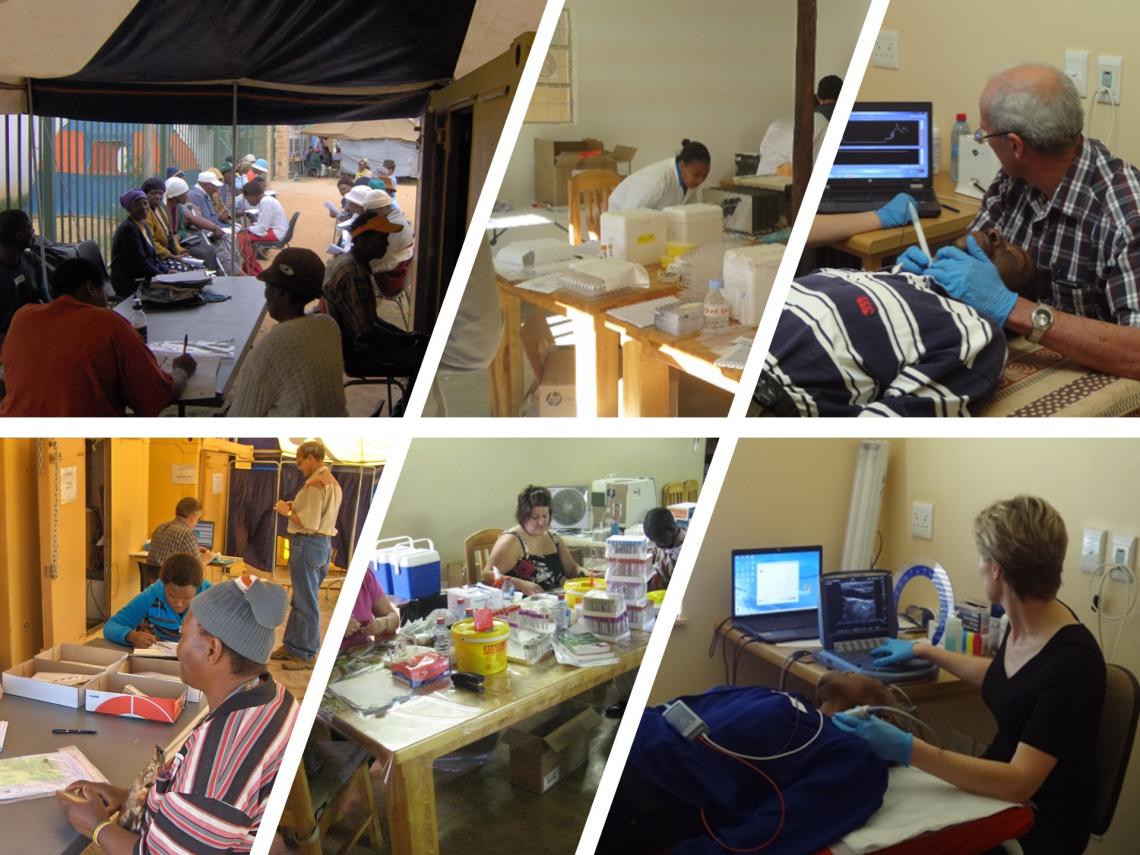Principal Investigators for the Cardiovascular Assessments in PURE: Prof CMT Fourie and Prof AE Schutte
The Prospective Urban and Rural Epidemiology (PURE) study is a longitudinal, multinational study including 17 low-, middle- and high-income countries of the world. The study will track changes in lifestyles, cardiovascular disease risk factors and chronic diseases over a period of at least 10 years, using standardized data collection in rural and urban areas. The baseline data collection of the South African leg of the PURE study was executed in 2005 in the North West Province and included 2010 randomly recruited (from an urban and rural setting) African volunteers older than 35 years. The five years follow-up data collection took place in 2010 and the ten year follow-up data collection in 2015.
Top articles from the HART group:
- Are behavioural risk factors to be blamed for the conversion from optimal blood pressure to hypertensive status in Black South Africans? A 5-year prospective study.
- Lipid abnormalities in a never-treated HIV-1 subtype C-infected African population.
- Urinary albumin excretion from spot urine samples predict all-cause and stroke mortality in Africans.
- Evaluation of waist-to-height ratio to predict 5 year cardiometabolic risk in sub-Saharan African adults.
- Self-reported alcohol intake is a better estimate of 5-year change in blood pressure than biochemical markers in low resource settings: the PURE study.
The HART group started with HIV and cardiovascular risk research in the PURE study on 300 HIV infected and 300 gender, age, locality and BMI matched HIV free participants. A mini follow-up study was executed on this group in 2008. Several articles were published on this topic:
- Is HIV-1 infection associated with endothelial dysfunction in a population of African ancestry in South Africa?
- HIV infection and cardiovascular risk in black South Africans.
- Soluble Urokinase Plasminogen Activator Receptor (suPAR) is associated with Metabolic Changes in HIV-1-Infected Africans: A Prospective Study.
- Cardiometabolic markers to identify cardiovascular disease risk in HIV-infected black South Africans.
- The five year cardiometabolic changes in treated versus never treated HIV-infected black South Africans: the PURE study.

